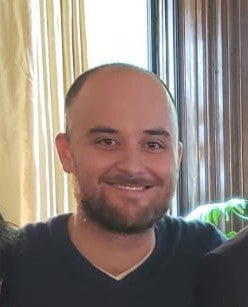by Brendan Schneiderman ’21

Law school is a weird place. Year one primarily involves tolerating classrooms with 80 strangers where we’re judged by our ability to answer pop questions about abstract legal concepts. As 1L closes, most of us turn to career pursuits, where the most “prestigious” options involve working at corporate law firms for high salaries. Many students then turn to clerkship prospects, after which life becomes counting down to graduation. In short, the path of least resistance steers us right past the kind of advocacy that inspired many of us to come to law school in the first place. Fortunately, my independent clinical at the National Consumer Law Center (NCLC) was a perfect departure from that beaten path.
I first came across the NCLC while searching for impact litigation organizations focused on consumer advocacy. During 1L, consumer protection cases consistently outraged me most: mortgagors selling loans designed to default; landlords renting out uninhabitable spaces to poor mothers; foreclosures and evictions triggered by the termination of public benefits. Once I committed to finding an organization working in this space, the NCLC, a nationally renowned organization, surged to the top of my wishlist.
Spending a semester there required formulating an independent clinical. This kind of clinic has several unique benefits. First, it allows students to find an organization tailored to their individual needs. I was interested in seeing a range of litigation subject matter, from consumer protection to administrative law. I also wanted to see what kind of work attorneys do outside the litigation space. On both axes, the NCLC excels: they litigate all sorts of subject matter, including those I was interested in, but they also provide education, policy advocacy and field research services to other attorneys. This interdisciplinary approach made the NCLC a perfect fit. (Independent clinics are also graded Credit Received/Fail, which helps mitigate end-of-semester stress.) The independent clinic experience is also valuable because of its informality. While I was assigned a supervising attorney, I never felt bound to work only with him. Instead, as I saw emails passed around about projects needing an extra hand, I felt free to offer my services. Moreover, oftentimes independent clinical students will be the only interns at their organizations, giving them higher odds of contributing to the work they are most interested in.
I worked on a wide variety of projects during my semester. The majority of my time was focused on making sure low-income communities aren’t left behind as state and local governments incentivize the purchasing of clean-energy vehicles. For example, some states offer an income tax rebate on these purchases, but a low-income family wouldn’t have any income tax liability, and therefore wouldn’t benefit from this incentive. My research involved outreach to non-profits and state legislators to learn about current policies. I also developed a cost-benefit calculator to show exactly how much a given state’s policies would impact the challenges a low-income consumer faces when purchasing an electric vehicle.
In addition, I worked with a team that was challenging a regulatory action that would re-define the standard for racial discrimination in housing. I researched how a recent Supreme Court decision defining the standard had been subsequently applied by lower courts. Relatedly, I conducted background research on why black families own homes in the United States at a much lower rate than white families. This task inspired my final writing project, which was a deeper statistical dive into the underlying causes of the homeownership gap, and why more research on the phenomenon is necessary.
I also experienced NCLC’s reputation as a first-rate consumer advocacy shop in a more personal way: this year, the NCLC celebrated its 50th anniversary with a big party at the conclusion of its annual conference, to which I was invited. There, I met Congresswoman Katie Porter of California, the keynote speaker and a hero of mine. Other guests included Senator Ed Markey (a former intern of the NCLC himself!), State Representative Nika Elugardo, and Elizabeth Cabreser, an esteemed plaintiffs’ attorney who litigated both the Deepwater Horizon disaster and the VW emissions scandal.
My most important experience at the NCLC, however, was simply getting a taste of its spirit. For me, much of the first year of law school involved biting my tongue or grimacing at insensitive statements made by well-to-do partners. Many conventionally successful attorneys become convinced that procedural technicalities and intellectual puzzles make their work rewarding, and thus never feel the need to reflect on the impact their legal advocacy has on the world outside.
The atmosphere at the NCLC is just the opposite. While people there are incredibly friendly and welcoming, they come to work with a clear motivation to improve things on the ground. Every decision is made out of a commitment to relentless, sober, and diligent advocacy, because that is what is needed in the communities the NCLC serves. While HLS’s path of least resistance may not expose students to such a clear-eyed, ends-driven focus, my time at the NCLC sure did. For receiving that perspective, I will always be grateful.
Filed in: Clinical Student Voices
Tags: Brendan Schneiderman, Ed Markey, Elizabeth Cabreser, National Consumer Law Center, Nika Flugardo
Contact Office of Clinical and Pro Bono Programs
Website:
hls.harvard.edu/clinics
Email:
clinical@law.harvard.edu